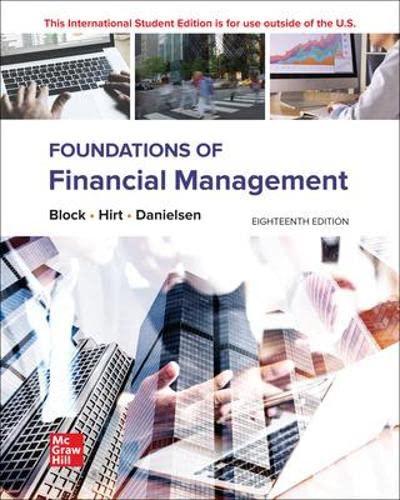*Question 5 The following are criticisms that could be made of the IASB's latest Conceptual Framework document. (a) The framework does not consider the meaning of the term 'true and fair view' despite this being a fundamental characteristic discussed in International Financial Reporting Standards. (b) The identification of prudence as a fundamental concept should focus on its asymmetric application because this is current practice in a number of specific areas. (c) The discussion of measurement bases is incomplete as it does not address the issue of entry values versus exit values despite the use of such values by preparers under current practice. 300 (d) The Framework provides no guidance on the issue of reclassification of gains and losses despite this matter being dealt with inconsistently in a number of existing International Financial Reporting Standards. Required: Discuss the extent to which the above criticisms could be justified by reference to specific International Financial Reporting Standards. *Question 3 A 2016 article by Alison Parker, CPA and Cheryl Hartfield, CPA, both executive editors of PPC products for the Tax & Accounting business of Thomson Reuters reflects on the arguments for and against US companies following International Financial Reporting Standards rather than US GAAP. Two of the arguments both for and against this development are as follows: Arguments for 1. IFRS provides a single global accounting language. 2. The US is currently well-represented in the IFRS standard-setting process with three seats on the 14-member IASB. Arguments against 1. Principles-based standards with a lack of industry-specific or transactional guidance may decrease the quality and consistency of reporting. 299 2. The IFRS standard-setting process is potentially subject to influence by political forces, which could lead to conflicts and inconsistent practices between jurisdictions. Required: Discuss whether the publication of the revised Framework by the IASB in March 2018 will be likely to persuade US standard setters that following IFRS would lead to financial reporting of sufficient quality and rigour. *Question 5 The following are criticisms that could be made of the IASB's latest Conceptual Framework document. (a) The framework does not consider the meaning of the term 'true and fair view' despite this being a fundamental characteristic discussed in International Financial Reporting Standards. (b) The identification of prudence as a fundamental concept should focus on its asymmetric application because this is current practice in a number of specific areas. (c) The discussion of measurement bases is incomplete as it does not address the issue of entry values versus exit values despite the use of such values by preparers under current practice. 300 (d) The Framework provides no guidance on the issue of reclassification of gains and losses despite this matter being dealt with inconsistently in a number of existing International Financial Reporting Standards. Required: Discuss the extent to which the above criticisms could be justified by reference to specific International Financial Reporting Standards. *Question 3 A 2016 article by Alison Parker, CPA and Cheryl Hartfield, CPA, both executive editors of PPC products for the Tax & Accounting business of Thomson Reuters reflects on the arguments for and against US companies following International Financial Reporting Standards rather than US GAAP. Two of the arguments both for and against this development are as follows: Arguments for 1. IFRS provides a single global accounting language. 2. The US is currently well-represented in the IFRS standard-setting process with three seats on the 14-member IASB. Arguments against 1. Principles-based standards with a lack of industry-specific or transactional guidance may decrease the quality and consistency of reporting. 299 2. The IFRS standard-setting process is potentially subject to influence by political forces, which could lead to conflicts and inconsistent practices between jurisdictions. Required: Discuss whether the publication of the revised Framework by the IASB in March 2018 will be likely to persuade US standard setters that following IFRS would lead to financial reporting of sufficient quality and rigour








